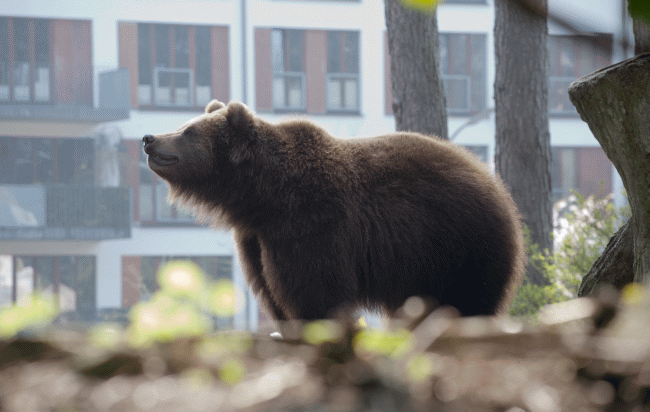
Pet parents are understandably devastated when a predator attacks their pet. Whether it was a wily coyote, a watchful bird of prey, or a defensive venomous snake, there is always great remorse when a domestic pet is lost. Fortunately, with a little foresight and care, these kinds of traumatic events can be avoided. It is the responsibility of the pet parent to see the danger ahead of time, and learn how to avoid putting their cat or dog in harm’s way. Learn what measures you can take to avoid a fatal run-in with a wild animal by implementing these simple precautions.
Tips of protecting your pet from predators
- Keep all food indoors. Many pet owners have compassion for feral cats that struggle to find enough food to survive, causing them to leave out delectable dishes for the animals to sup on. While this might seem kind, it actually puts domestic pets (and sometimes their humans) in jeopardy. Pet food being left out attracts not only vermin, bugs, and domestic trespassers (like your pecky neighbor’s cat Mittens!) but also large animals looking for sustenance. Do not leave anything out that could double as a meal.
- Cover the trash. Secure lids on all trash cans or recycle bins you keep outside. Many wild animals are scavengers, and coyotes and raccoons are drawn to trash bins in hopes of finding food. If they should happen to see that you have a live animal on the premises, your pet may be in trouble. Do not make your trash accessible.
- Build a secure fence. If you are able, (or you live in a particularly coyote-infested area), build a wild-dog-proof fence measuring around 6ft tall. If you can add a roller bar at the top of the fence, this will make crossing into your backyard very challenging for any animal, large or small. Another advisable option to fortify the barrier, is to build a fence that extends into the ground, so that no motivated diggers will have a chance of entering.
- Keep hosting areas tidy. In warm summer months we often opt for dining out on our porches, patios and lawns, forgetting that there might be scraps left behind. If you regularly barbeque or eat outdoors, be sure to leave the space spick and span if you want to avoid intruders.
- Poop-scoop often. Animal waste smells vile to human noses, but to animal’s this is a promising odor. It means there is food nearby, and some scavengers are not above snacking on the feces themselves. Keep the miscreants off your lawn by picking up the poop on a regular basis.
- Watch the nightly activity. If you have been putting food out for feral cats, find out if it is indeed only stray cats that are eating it. If you fear there might be some activity of larger creatures on your property, set up a basic night camera and see who is coming to the food dish while you are sleeping. Know what kind of predator you are dealing with will help you know how to scare them away.
- Set up built-in barriers: Using an ultrasonic sound device that will emit unpleasant noises whenever an animal trespasses. If this does not seem to work, there are also frightening-tactic machines that work as motion detectors, and will spray streams of water suddenly toward any object or creature that passes a border. Since wild animals tend to be skittish, these can prove very effective.
If, for whatever reason, your dog or cat is not able to stay indoors (though we cannot think of any reasons why this should be the case), DO NOT tie or chain up your pet outside. If there is a predator nearby, the almost seals their fate, giving them no place to escape or run for cover. Remember, it is ALWAYS best to keep your dog or cat indoors with you.
Note: If you still have a consistent problem with a wild animal who is wreaking havoc on your property or (worse) is preying on your pets, then apply to the Fish and Game department in your state for a depredation permit. This will allow you permission to kill the intruder or have the city trap him for you, so that you and your pets can stay safe.

